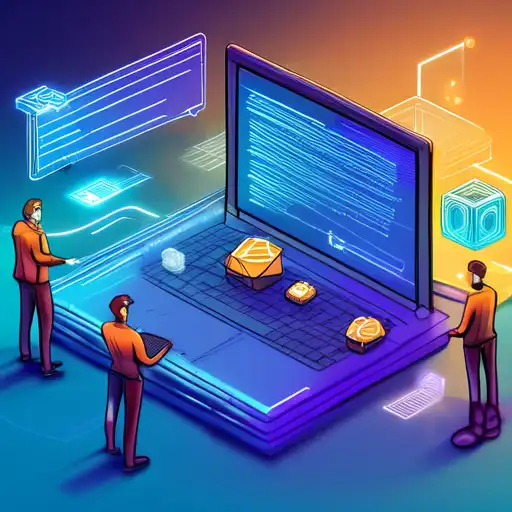Introduction to Smart Contracts
Smart contracts represent a pivotal innovation in blockchain technology, automating agreements without the need for intermediaries. These digital contracts execute transactions automatically when predetermined conditions are met, ensuring trust and efficiency in decentralized environments.
How Smart Contracts Work
At their core, smart contracts are self-executing contracts with the terms of the agreement directly written into code. They run on blockchain networks, which means they are distributed and immutable. This ensures that once a contract is deployed, it cannot be altered, providing a high level of security and transparency.
Benefits of Smart Contracts
- Autonomy: Eliminates the need for intermediaries, giving full control to the parties involved.
- Trust: Encrypted and stored on a blockchain, making them secure and tamper-proof.
- Efficiency: Automates processes, reducing time and costs associated with traditional contracts.
- Accuracy: Minimizes errors by automating tasks that are manually intensive.
Applications of Smart Contracts
Smart contracts find applications across various sectors, including finance, real estate, healthcare, and more. For instance, in the finance sector, they can automate payments and claims, while in real estate, they can streamline property sales and rentals.
Challenges and Considerations
Despite their advantages, smart contracts face challenges such as legal recognition, scalability, and the risk of bugs in the code. It's crucial for developers to conduct thorough testing and for users to understand the terms before engaging.
Future of Smart Contracts
The future of smart contracts is promising, with ongoing advancements in blockchain technology enhancing their functionality and adoption. As the technology matures, we can expect wider acceptance and innovative use cases across industries.
Smart contracts are revolutionizing how we think about agreements in the digital age. By leveraging blockchain technology, they offer a secure, efficient, and transparent way to execute contracts, paving the way for a more decentralized future.
